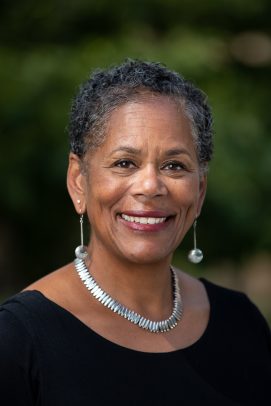UIC professor selected for Freedom Scholar social change award
University of Illinois Chicago professor Beth Richie is among a select group of 10 progressive academics to be named to the latest cohort of the Marguerite Casey Foundation’s Freedom Scholars, a group of scholars leading research and engaged in organizing that advances a racial and economic justice agenda.

Now in its third year, the Freedom Scholars honor provides a one-time award of $250,000 to each recipient to support their work.
Richie, UIC professor and head of criminology, law and justice and professor of Black studies, has conducted four decades of scholarly and activist work focused on the ways that race, ethnicity and social position affect the experience of violence and criminalization, particularly the experiences of Black women and gender non-conforming people. She discusses the importance of ideas and their impact on culture in a video from the foundation.
Her current work is at the nexus of race, criminalization and gender violence.
“I am working on projects in support of criminalized survivors — women and other people who have experienced physical, sexual, and emotional harm from individuals, community institutions and state agencies who are then punished for their attempts to resist or protect themselves,” she said. “This work includes a new research project that documents the extent and nature of the incarceration of survivors of violence and activist work on grassroots campaigns to free people from the long reach of the criminal legal system.”
Richie also teaches at Stateville Correctional Center and is leading an effort to begin an educational program at Logan Correctional Facility. She is the convener of the UIC Abolition Teaching and Learning Network, a group of faculty, students and staff who are working on campus to ensure that incarcerated and formerly incarcerated students have the benefit of a college education and that the campus is accessible to those impacted by mass criminalization.
All of this work is guided by a commitment to abolition feminism and anti-racist strategies for justice, where harm is addressed without the violence of the carceral state, said Richie, who has been at UIC since 1997.
“The recognition as a Freedom Scholar will advance that work, building institutional capacity on campus, expanding access to legal and educational services in prisons, challenging patriarchal and racist policies that harm survivors, creating transformative justice and community-based solutions to gender violence and building a world where freedom and justice prevail,” she said.
Her latest publication, “Abolition. Feminism. Now.,” a book she co-authored with Angela Y. Davis, Gina Dent and Erica Meiners, was published earlier this year. Among her other published works is “Arrested Justice: Black Women, Violence and America’s Prison Nation,” which chronicles the evolution of the contemporary anti-violence movement during the time of mass incarceration in the United States. Her book “Compelled to Crime: The Gender Entrapment of Black Battered Women” is taught in college classrooms and is cited in the popular press for its original arguments concerning race, gender and crime.
Richie’s work has been supported by grants from the Robert Wood Johnson Foundation, the Ford Foundation, the National Institute for Justice and the National Institute of Corrections.
Richie’s previous honors include the Audre Lorde Legacy Award from the Union Institute, The Advocacy Award from the U.S. Department of Health and Human Services, The Visionary Award from the Violence Intervention Project and the UIC Woman of the Year Award. Next year, she will be designated as a UIC College of Liberal Arts and Sciences distinguished professor.
She is the second UIC scholar to earn the Freedom Scholar honor. In 2020, UIC historian Barbara Ransby was among the inaugural recipients of the award, which was established to enhance the financial resources available to scholars leading abolitionist, Black, feminist, queer, radical and anti-colonialist studies.
“Through their research, these scholars provide critical insight to social justice leaders and encourage all of us to radically reimagine a democracy, economy and society animated by liberation,” Carmen Rojas, president and CEO of the Marguerite Casey Foundation.
